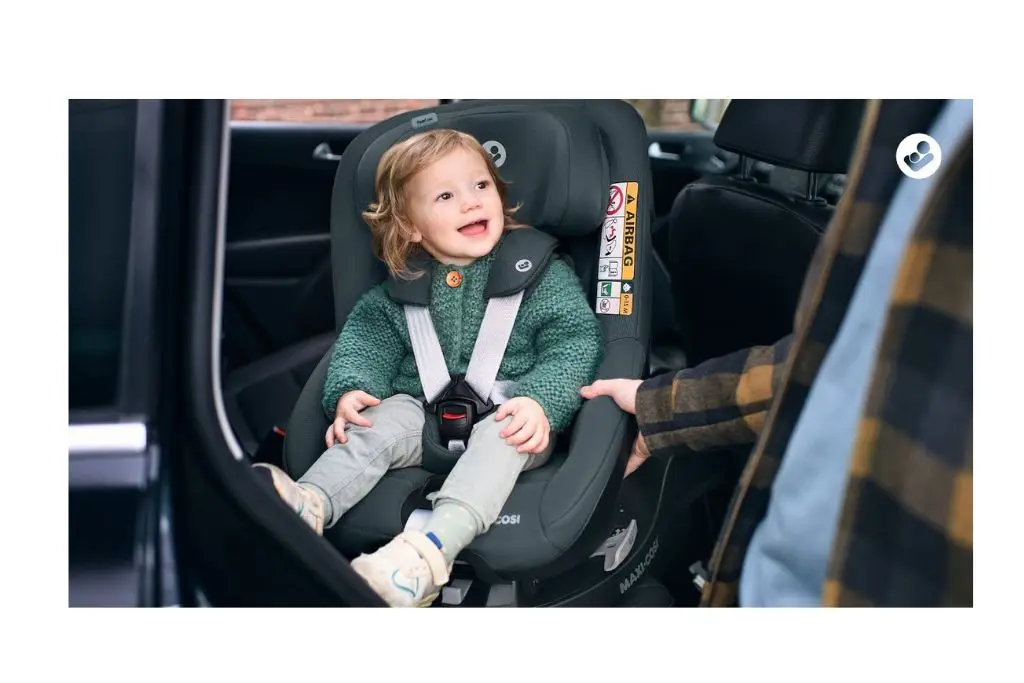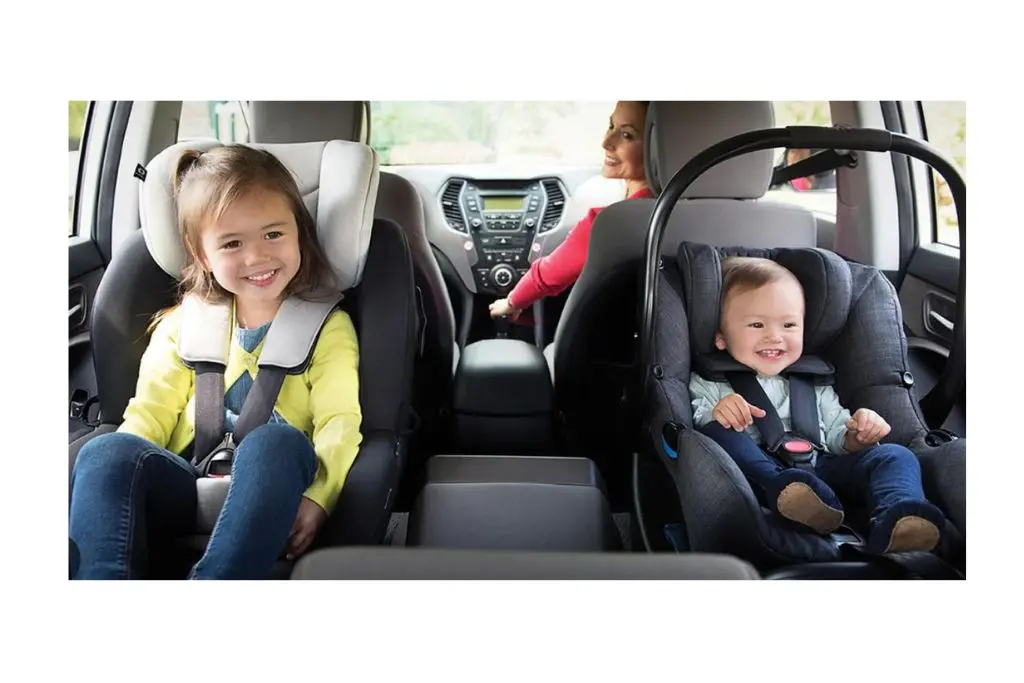A baby should not stay in a car seat for more than two hours at a time. Frequent breaks are necessary.

Ensuring your baby’s safety and comfort during car rides is crucial. Long periods in a car seat can pose health risks. Experts recommend limiting car seat use to two-hour intervals. Take regular breaks to allow your baby to stretch and move.
This practice helps prevent potential issues like breathing difficulties and flat head syndrome. It’s also important to ensure the car seat is properly installed and adjusted to fit your baby snugly. Keeping these guidelines in mind will help make car travel safer and more enjoyable for both you and your baby. Always prioritize your child’s well-being during any journey.
Importance Of Proper Car Seat Usage
The safety of babies in cars is very important. Car seats help keep babies safe in the event of a crash. But, how long can a baby be in a car seat? Parents need to know the rules and best practices. This helps ensure the baby’s safety and comfort during car rides.
Safety Regulations
Car seat safety rules vary by country and region. These rules help protect babies during travel. Here are some key points to remember:
- Follow the manufacturer’s guidelines. Each car seat has specific instructions.
- Check the car seat’s expiration date. Car seats have a limited lifespan.
- Use the correct car seat for your baby’s age and weight. There are different types of car seats for different stages.
- Install the car seat correctly. A poorly installed car seat can be dangerous.
- Regularly inspect the car seat. Look for any signs of wear or damage.
Experts recommend that babies should not stay in car seats for more than 2 hours at a time. This rule helps prevent health issues. Extended periods in a car seat can cause problems like poor posture and breathing issues. Parents should plan regular breaks during long car trips. These breaks allow the baby to stretch and move around.
Risk Factors
There are several risks associated with prolonged use of car seats. Understanding these risks helps parents take better care of their babies:
- Breathing problems: Babies have smaller airways. Being in a semi-upright position for too long can make it hard for them to breathe.
- Positional asphyxiation: This occurs when a baby’s airway gets blocked. It can happen if the baby’s head falls forward.
- Flat head syndrome: Spending too much time in a car seat can cause flat spots on a baby’s head.
- Discomfort and fussiness: Babies might become irritable if they stay in one position for too long.
Parents should also be aware of the signs of discomfort. If a baby seems fussy or uncomfortable, it’s time for a break. A short walk or some time out of the car seat can help. Safety should always come first. Parents should be prepared and know the best practices for car seat safety.

Recommended Duration For Baby In Car Seat
Understanding how long a baby can be in a car seat is crucial for their safety and comfort. Experts have guidelines to ensure that babies are not in car seats for too long. This blog post will discuss the recommended duration for babies in car seats, focusing on infants and toddlers.
Infant Guidelines
For infants, it’s important to follow specific guidelines to ensure their safety. Newborns and younger babies have more delicate bodies. They need extra care and attention. Here are some key points:
- Limit car seat time to 30 minutes for newborns.
- For babies up to 6 months, try to limit car seat use to 2 hours at a time.
- Ensure frequent breaks during long journeys.
Long periods in a car seat can cause breathing problems and discomfort. Babies need to lie flat to support their developing spine and airway. A car seat keeps them in a semi-upright position, which isn’t ideal for long durations.
Here’s a quick reference table:
| Age | Recommended Duration |
| Newborn | 30 minutes |
| Up to 6 months | 2 hours |
Toddler Guidelines
As babies grow into toddlers, their ability to sit in car seats improves. Toddlers can typically handle longer durations in car seats than infants. Here are some suggestions:
- For toddlers aged 6-12 months, try to limit car seat use to 2 hours at a time.
- After 1 year, toddlers can usually stay in a car seat for 2-3 hours safely.
- Always ensure regular breaks to let the child stretch and move around.
Even though toddlers can sit for longer periods, it’s still important to take breaks. This helps prevent any discomfort or restlessness. Regular breaks also allow for feeding and diaper changes, which are crucial for a child’s well-being.
Here’s a quick reference table:
| Age | Recommended Duration |
| 6-12 months | 2 hours |
| 1-3 years | 2-3 hours |
Effects Of Prolonged Car Seat Usage
Babies often spend a lot of time in car seats. Parents need to understand the effects of prolonged car seat usage. This blog post will explore the physical impact and developmental concerns of keeping a baby in a car seat for too long.
Physical Impact
Prolonged car seat use can affect a baby’s body. Babies have soft bones and muscles. Spending too much time in a car seat can lead to muscle stiffness and joint problems. This can make them uncomfortable and fussy.
Another risk is restricted blood flow. When a baby sits in the same position for too long, it can reduce blood circulation. Poor blood flow can cause numbness and discomfort. It’s important to ensure they move and stretch.
Here are some common physical issues:
- Flattened head (plagiocephaly)
- Stiff neck (torticollis)
- Back pain
Here’s a table showing the recommended maximum time for babies in car seats:
| Age | Maximum Time |
| 0-6 months | 30 minutes |
| 6-12 months | 45 minutes |
| 1 year and above | 1 hour |
Developmental Concerns
Car seats can also affect baby development. Babies need to move freely to develop their motor skills. Sitting in a car seat for too long can slow down their development.
Babies learn by exploring their surroundings. If they are strapped in a car seat, they miss out on important experiences. This can delay their cognitive and social development. They need to interact with their environment and the people around them.
Here are some developmental concerns:
- Delayed motor skills
- Reduced social interactions
- Limited sensory experiences
Parents should give their babies plenty of tummy time and floor play. This helps them build strength and coordination. It’s important to balance car seat time with active play.
Alternatives To Extended Car Seat Use
Car seats are crucial for baby safety during car rides. But, keeping a baby in a car seat for too long can be uncomfortable and unhealthy. Parents often look for alternatives to extended car seat use. This guide explores some practical options to ensure your baby’s comfort and safety.
Transferring To Stroller
Strollers can be a great option for short trips. They offer more movement and comfort. Here are some key benefits of using a stroller:
- More freedom to move for your baby
- Better airflow and less sweating
- Easier for parents to push and manage
Strollers can come with features like adjustable seats and sunshades. These features help make your baby’s ride more pleasant. Consider using a stroller for trips to the park or short walks. This way, your baby can enjoy the surroundings while staying comfortable.
Taking Breaks On Long Journeys
Long car rides can be tiring for babies. It is important to take regular breaks. Here is a simple plan to follow:
| Duration | Action |
| Every 2 hours | Stop the car and take a break |
| 15-20 minutes | Let the baby stretch and move |
| Feeding time | Feed the baby outside the car |
Plan breaks at rest areas or parks. These spots offer space for your baby to move around. Fresh air and a change of scenery can make the journey more enjoyable. Always ensure your baby is safe and comfortable during these breaks.
Also, Read:
| How Much is Car Seat Rental at Enterprise |
| How to Tighten Car Seat Straps: A Safe Ride Guide |
| How Long Can You Use Doona Car Seat: Unveil the Limits! |
Frequently Asked Questions On How Long Can a Baby Be in a Car Seat
How Long Can A Baby Stay In A Car Seat?
A baby should not stay in a car seat for more than 2 hours at a time.
Is It Safe For A Newborn To Be In A Car Seat?
Yes, but limit car seat time to 30 minutes for newborns to prevent breathing issues.
How Often Should You Take Breaks On A Trip?
Take breaks every 2 hours to remove the baby from the car seat.
Can Long Car Seat Use Harm My Baby?
Prolonged car seat use can cause breathing problems and affect spinal development.
Conclusion
Understanding car seat safety ensures your baby’s well-being during travel. Always follow guidelines and take regular breaks. Choosing the right car seat and using it correctly makes a significant difference. Stay informed and prioritize your baby’s comfort and safety for every journey.
Safe travels!
Last Updated on June 14, 2024 by Brian Beasley

